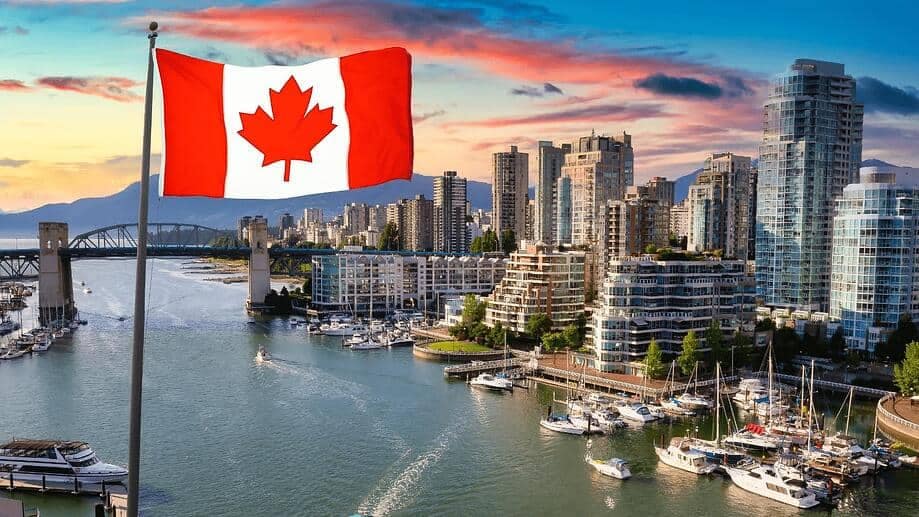10 things you should know before

This article will help set you on the right path to integrating into Canadian life. Less confusion and realistic expectations when moving to Canada will increase your chances of achieving success.
1. Weather
Keen to emigrate but can’t choose between sun or snow? Why not have both? Unless you’re living on the BC coast (or to a lesser extent, parts of Southern Ontario), you are almost certain to experience cold, snowy winters and hot summers, with short transitional seasons.
If you come from a mild or warm climate, the bitter cold of a Canadian winter is sure to surprise you. It’s difficult to describe how cold -25°C can feel, but fear not, the good news is that you can come prepared with the right clothing and attitude.
Another upshot is that Canadians don’t take summer for granted — they know how to make the most of the warmer months.
2. Diversity
Generations of immigrants have received a warm welcome to Canada. Multiculturalism is part of the Canadian ethos, and central to national policy. Over 40 sitting Members of Parliament were born abroad. In any major city, as well as many rural communities for that matter, you will encounter myriad languages, religions, and cultures.
You don’t need to let go of your culture or values after moving to Canada, but you do need to evolve so that you can successfully adjust and have the greatest chance of achieving success. Keeping an open mind will benefit you, as well as those around you.
3. Tipping
You may come from a country where workers in the service and hospitality sectors earn a guaranteed livable wage with additional benefits, and therefore tipping may not be a part of your culture. That’s great, but Canada is different, and becoming accustomed to tipping is a basic ‘when in Rome, do as the Romans do’ situation.
Bartenders and servers generally earn minimum wage, which, depending on the province, is around $10 per hour. Indeed, some provinces have a lower minimum wage closer to $8 for service workers, on the expectation that they will earn tips to compensate, and staff usually have to “tip out” other staff (such as those in the kitchen), with a portion of their sales.
This might seem strange and you may disagree, but by not tipping, the server is effectively paying out of their own pocket to serve you. So, unless the service is poor, please tip.
The standard tip is 15% of the total bill (or 20% for highly knowledgeable, attentive service), or a dollar per drink (a couple of dollars would suffice for a round).
4. The job hunt
Researching, looking for and applying for jobs in Canada can be a lengthy process — perhaps much longer than what you are used to, as you establish connections in your new home. Months can pass before you land a professional position, so you should plan accordingly to ensure your welcome to Canada goes smoothly.
This means:
1. Bring enough funds to tide you through your first few months.
2. Be prepared to take on a non-career job in the short term but always be on the lookout for your next career move.
3. Begin to think and act Canadian before you even set foot in Canada. This means adapting to the resume format in Canada, networking and being proactive.
5. Cost of living
Avoid a harsh welcome to Canada by knowing the basic cost of living in your adopted city before you move. If you move and are surprised by how expensive rent or transportation is, that’s not the city’s fault — it’s yours.
Research is crucial. Toronto and Vancouver, particularly the downtown areas, are relatively expensive. Rent-controlled Montreal, on the other hand, has low property values and low rent, but also lower salaries.
This site allows you to compare the cost of living between Canadian cities and towns.
On the market since 2006
We know the industry inside out: the details of the Due Diligence process for each citizenship and residence permit by investment program, when an affidavit is needed and the best way to resolve our clients’ problems.
Licensed agent
We work exclusively with government-licensed citizenship and residence permit by investment programs in the European Union and the Canadian.
Schedule a meeting
Let’s discuss the details
Schedule a meeting at one of the offices or online. A lawyer will analyze the situation, calculate the cost and help you find a solution based on your goals.
- Preparation of documents
- Due Diligence

10 things you should know before going to canada Buying a car in Canada Buying your first home in Canada Canadian Citizenship Canadian Study Permit Choosing the right study program Essential packing checklist Exploring destinations Express Entry Filing taxes in Canada Finding accommodation Finding a job in Canada Finding the right school Immigrants Job interview questions Learn Earn Stay Leaving your home country Opening a student bank account Open Work Phone providers in Canada Picking a destination Plan your banking Post-Graduation Work Permits Prepaid vs. Contract Plans Preparing for arrival Ship your belongings Starting your career Student accommodation study in Canada Study Permits Study Program Super Visa The International Student Roadmap The Letter of Acceptance The Student Direct Stream (SDS) Tips for exam period Top 10 reasons to study in Canada Transfer your money cheaply Travel & health insurance Utilities providers Work in Canada Work while studying write a Canadian resume Your first week in Canada Your first week in Canada student
